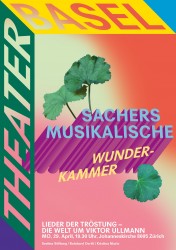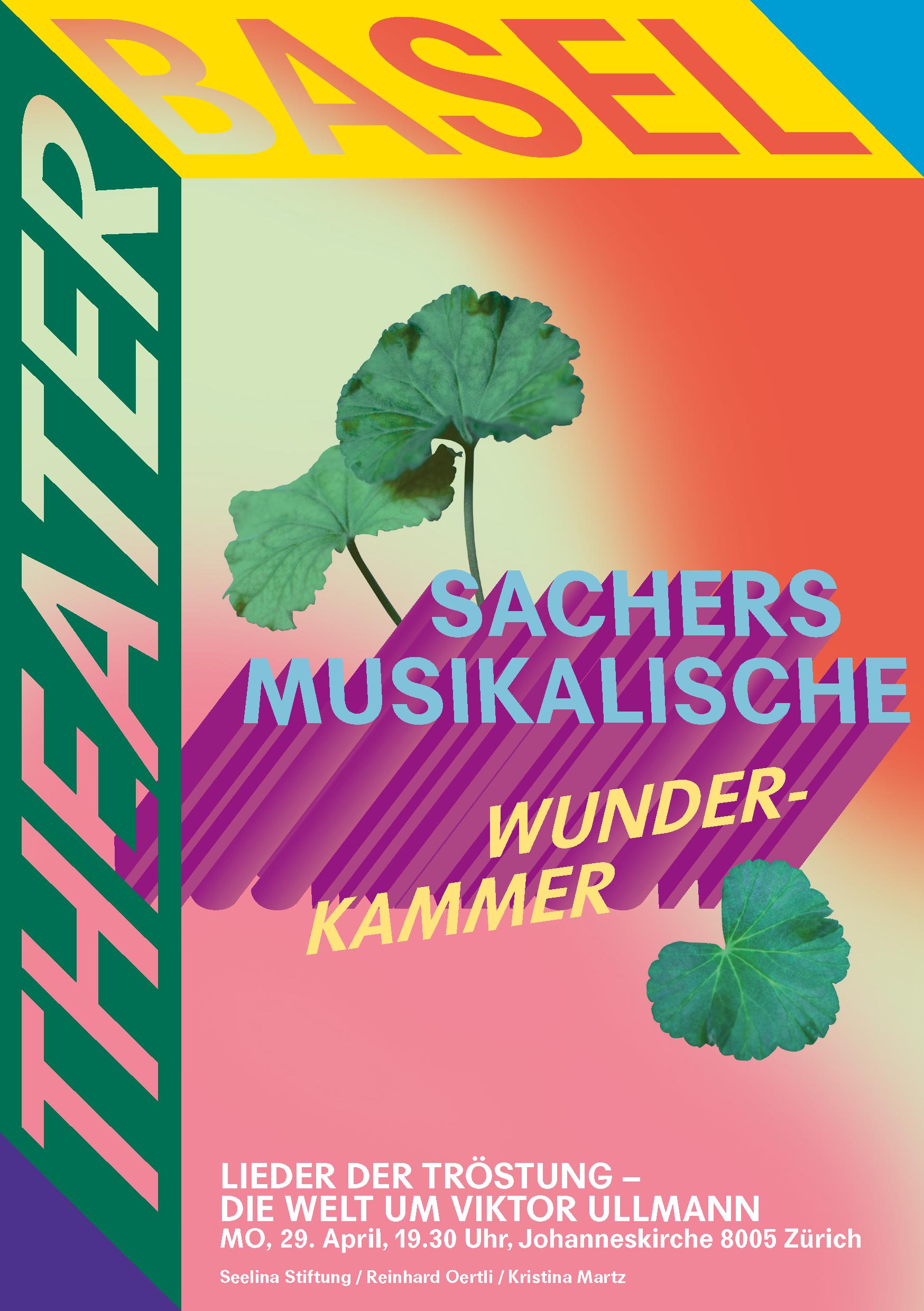 Switzerland Ullmann, Weber: Sarah Brady (soprano), Ena Pongrac (mezzo-soprano), Hyunjai Marco Lee (tenor), members of the Basel Sinfonietta (Mirka Scepanovic, Kirsten Harms [violins], Anne-Françoise Guezinger [viola], Aude Pivôt [cello], Stephen Delaney [musical arrangement, piano]), Katrin Hammerl (moderator), Johanneskirche Zurich, 29.4.2019. (JR)
Switzerland Ullmann, Weber: Sarah Brady (soprano), Ena Pongrac (mezzo-soprano), Hyunjai Marco Lee (tenor), members of the Basel Sinfonietta (Mirka Scepanovic, Kirsten Harms [violins], Anne-Françoise Guezinger [viola], Aude Pivôt [cello], Stephen Delaney [musical arrangement, piano]), Katrin Hammerl (moderator), Johanneskirche Zurich, 29.4.2019. (JR)

Ilse Weber – ‘Ich wander durch Theresienstadt’; ‘Denn alles wird gut’; ‘Adé, Kamerad!’; Wiegenlied’; ‘Und der Regen rinnt’; ‘Dobrý den’; ‘Wiegala’
Viktor Ullmann – Geistliche Lieder Op. 20; String Quartet No. 3 Op. 46; ‘Herbst ‘ for voice and string trio; Lieder der Tröstung for voice and string trio
Theresienstadt, in the Czech town of Terezin, was just north of Prague, in the direction of Dresden. The Nazis set up a concentration camp there, but not one with gas chambers. It was designed as a transit camp and a show camp for propaganda purposes. Conditions at the camp therefore were tolerable, but no doubt the inmates suspected worse might be to come. Some prisoners were executed for trying to escape, others died of malnutrition. Remarkably, a vibrant musical scene was allowed to develop and flourish. Sadly, many of the compositions perished along with their composers, once the inmates had been deported to Auschwitz. Luckily a few works were saved and this concert was of such precious fragments. Ullmann, before going to the death camp, gave his pieces to a friend, the camp librarian Emil Utitz, who survived the camp; Utitz took the compositions to England and they have eventually made their way into the Paul Sacher Foundation’s library in Basel. Ilse Weber’s poems and songs were retrieved by her husband Willy, who survived Auschwitz and survived his wife by thirty years.
With the assistance of the Paul Sacher Foundation, the Seelina Foundation and the Zurich lawyer and art lover Dr. Reinhard Oertli, Theater Basel came to Zurich to repeat a concert held in Basel. A few weeks earlier, Theater Basel had staged three performances of Ullmann’s one act opera Der Kaiser von Atlantis oder die Todesverweigerung.
The three young singers were all members of the Opera Studio OperAvenir in Basel. Irish Sarah Brady has a very bright clean soprano, with power behind it, Croatian mezzo Ena Pongrac a warmth and maturity well beyond her years and Korean Hyunjai Marco Lee a light but sturdy tenor. The ladies had the more melodic, harmonic songs, songs of haunting beauty. The singers were accompanied on the piano by Australian Stephen Delaney who runs the Opera Studio in Basel and had arranged the Weber songs for piano and strings.
We started with a deceptively charming picture postcard of the camp, a delicate song by Ilse Weber. Then, Viktor Ullmann’s song cycle Geistliche Lieder (sacred songs), which he had written in Prague when German troops marched into the city, but before he was interned. The cycle focusses presciently on the themes of life, death and the fleeting nature of life. We also heard his later, darker song cycle Lieder der Tröstung (songs of solace), written in the camp, and which focus on one subject – death.
And although the tone of the concert could hardly be upbeat, the compositions were of such poignancy that one felt privileged to hear them, in a performance of such quality. It helped perhaps that the performance was given in the Johannes-Kirche, one of Zurich’s more attractive churches, in front of a copy of Matthias Grünewald’s and Nikolaus of Hagenau’s famous 500-year-old Isenheim Altar, with the wings of the resurrection and the annunciation open.
The string quartet (all members of the Basel Sinfonietta) played with great virtuosity and conviction. Ullmann’s striking Third String Quartet was played in the camp and it brought to my mind the string works of Ralph Vaughan-Williams and his war symphonies (Nos. 4 and 6); there was anger and pain to be heard but also ravishing harmony and counterpoint. The powerful finale was almost victorious and demonstrated a will to live despite what must have been constant humiliations and suffering.
Ilse Weber’s song ‘Und der Regen rinnt’ also told a moving story. Weber had two sons; the younger one, Tommy, came with her to the camp and also perished in Auschwitz. But the older one, Hanuš, was more fortunate and was sent on a ‘Kindertransport’ to Sweden, where I believe he still lives. The song relates the mother’s yearning for her distant son. It brought a tear to the eye.
The concert ended with a moving lullaby by Weber sung by all three singers. Weber was a nurse for the sick children in the camp and one could imagine it being sung to such children as they fell asleep. It made a fitting close to this touching and commendable evening. Possibly I was moved more than others by the fact that both my parents avoided almost certain extermination in the camps by leaving Germany in the 1930s, my mother just weeks after the ‘Kristallnacht’ in November 1938 when she witnessed first-hand Nazi storm-troopers entering her family home and smashing the place to smithereens. The writing was on the wall, and fortunate were they who had the courage and the means to flee.
John Rhodes

Thank you John for this in depth review. I too was at concert and deeply moved by the quality of the performance and compositions. How fortunate we were to witness such beautiful, somber music with sparkles of joy and oozing talent along with humanity in such an intimate setting. Thank you also Dr R. Oertli for organizing such venues in Zürich.
Jean Rosston shared your account of the concert with me. Thanks for the beautiful write-up, and thanks to Reinhard Oertli, the sensitive impresario.